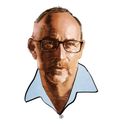What is the first news event you can recall?
A bit of a cliché, but it was the assassination of JFK. I was in grade school; the kids were really shocked; we didn’t imagine we lived in a country where things like that could happen.
What is the biggest problem of all?
Clearly climate change. Nothing else matters if we don’t deal with that. What makes it excruciating is that we know perfectly well how to fix it—it’s an Econ 101 problem. But greed and motivated reasoning stand in the way, and may doom us all.
If you could spend a day in any time or place, what would that be?
I’d like to see an ordinary day in Augustan Rome—not a special-occasion day or parade, just a view of the reality of life at the centre of a sophisticated civilisation that we sort of imagine we know but was also utterly alien to modern sensibilities.
What is your favourite quotation?
I think it’s from Charles Issawi: “People get worse as they grow older, because they become more like themselves.” I try to keep that in mind for myself, as something to avoid.
What would people be surprised to know about you?
Late in life I’ve become a huge fan of indie music. A small, standing-only venue with a beer in my hand and a great band on stage is my favourite experience.
What have you changed your mind about?
Lots of things! The biggest thing, though, is that I’m considerably less of a believer in the invisible hand and more concerned about power than when younger.
What is the most dangerous economic myth of all?
The idea of a country as like a household, so that you always want your income to exceed your spending, with debt just a burden for the future. The reality is that money flows in a circle within the economy, and that changes everything.
Can ideas and argument ever alter the course of events?
Yes, within limits. We handled the Great Recession a bit better than the 1930s depression in part because we know some things our grandfathers didn’t. But I titled my book Arguing with Zombies because bad ideas that serve the interests and prejudices of the powerful are very hard to eradicate.
Are things getting better or worse?
Some things are getting much better: global poverty is way down, raw racism and prejudice are a lot less prevalent than they were. But greenhouse gases are rising, which is terrifying, and democratic values seem to be in retreat, which is also terrifying.
What do you most regret?
I wish I’d been more of a mentor. I’ve had fine students, but not as many as I would have done if I’d been less distracted.
Who, dead or alive, would you ask to your dream dinner party?
Wow. Let’s try a proper Upper West Side activists-and-scholars dinner party. Men: Julius Caesar (who somehow comes across as a man way ahead of his time), Abraham Lincoln, Niels Bohr, Nelson Mandela. Women: Jane Austen, Harriet Tubman, Ida Tarbell, Rosalind Franklin.
Arguing with Zombies: Economics, Politics, and the Fight for a Better Future by Paul Krugman (Norton, £22.99) is out now
A bit of a cliché, but it was the assassination of JFK. I was in grade school; the kids were really shocked; we didn’t imagine we lived in a country where things like that could happen.
What is the biggest problem of all?
Clearly climate change. Nothing else matters if we don’t deal with that. What makes it excruciating is that we know perfectly well how to fix it—it’s an Econ 101 problem. But greed and motivated reasoning stand in the way, and may doom us all.
If you could spend a day in any time or place, what would that be?
I’d like to see an ordinary day in Augustan Rome—not a special-occasion day or parade, just a view of the reality of life at the centre of a sophisticated civilisation that we sort of imagine we know but was also utterly alien to modern sensibilities.
What is your favourite quotation?
I think it’s from Charles Issawi: “People get worse as they grow older, because they become more like themselves.” I try to keep that in mind for myself, as something to avoid.
What would people be surprised to know about you?
Late in life I’ve become a huge fan of indie music. A small, standing-only venue with a beer in my hand and a great band on stage is my favourite experience.
What have you changed your mind about?
Lots of things! The biggest thing, though, is that I’m considerably less of a believer in the invisible hand and more concerned about power than when younger.
What is the most dangerous economic myth of all?
The idea of a country as like a household, so that you always want your income to exceed your spending, with debt just a burden for the future. The reality is that money flows in a circle within the economy, and that changes everything.
Can ideas and argument ever alter the course of events?
Yes, within limits. We handled the Great Recession a bit better than the 1930s depression in part because we know some things our grandfathers didn’t. But I titled my book Arguing with Zombies because bad ideas that serve the interests and prejudices of the powerful are very hard to eradicate.
Are things getting better or worse?
Some things are getting much better: global poverty is way down, raw racism and prejudice are a lot less prevalent than they were. But greenhouse gases are rising, which is terrifying, and democratic values seem to be in retreat, which is also terrifying.
What do you most regret?
I wish I’d been more of a mentor. I’ve had fine students, but not as many as I would have done if I’d been less distracted.
Who, dead or alive, would you ask to your dream dinner party?
Wow. Let’s try a proper Upper West Side activists-and-scholars dinner party. Men: Julius Caesar (who somehow comes across as a man way ahead of his time), Abraham Lincoln, Niels Bohr, Nelson Mandela. Women: Jane Austen, Harriet Tubman, Ida Tarbell, Rosalind Franklin.
Arguing with Zombies: Economics, Politics, and the Fight for a Better Future by Paul Krugman (Norton, £22.99) is out now












